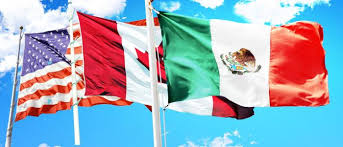
The White House published, on April 3, an executive summary of the Report to the President on the America First Trade Policy that contains the reviews, investigations, findings, identifications, and recommendations requested by President
On August 10, 2021, the U.S. Senate passed an infrastructure bill, the Infrastructure Investment and Jobs Act, which authorizes $1 trillion in spending on a broad range of infrastructure projects. Its 69-30 vote was “overwhelmingly bipartisan.” The
China’s negotiations to join the WTO Government Procurement Agreement (GPA) have entered their 14th year, with little indication they will conclude anytime soon. While China has made significant progress in its GPA negotiations, the United States and

On May 30, the U.S. Trade Representative (USTR) took a step forward in its efforts to obtain Congress’s approval of the U.S.-Mexico-Canada Agreement (USMCA), with its submission of a draft Statement of Administrative Action (SAA) to congressional
On December 11th, the U.S. Trade Representative (USTR) announced the U.S. dollar values of the thresholds that will apply in 2018 and 2019 to U.S. federal and state procurement covered by the WTO Government Procurement Agreement (GPA) and free trade
The President’s 2017 trade agenda declared strict enforcement of U.S. trade laws as a major priority, citing Sections 201 and 301 of the Trade Act of 1974. The past several months have seen action under both laws. This post examines the Trump
When President Trump entered office four months ago, he was expected to take immediate steps to renegotiate the North American Free Trade Agreement (NAFTA), or even withdraw from it, as he did with the Trans-Pacific Partnership. However, the Administration
On March 1, the U.S. Trade Representative (USTR) issued the 2017 Trade Policy Agenda, the first official statement of the new Administration’s trade policy. It essentially rejects the policy of more than two decades, concluding that the United States needs
On April 1, the U.S. Trade Representative (USTR) notified Congress of six changes to existing laws that will be required to bring the United States into compliance with its obligations under the Trans-Pacific Partnership (TPP). Four of the changes are
On October 27, the Office of the U.S. Trade Representative (USTR) issued “Guidelines for Consultations and Engagement” (Guidelines) for consultations with Congress, the public and advisory committees relating to negotiations of trade agreements that are